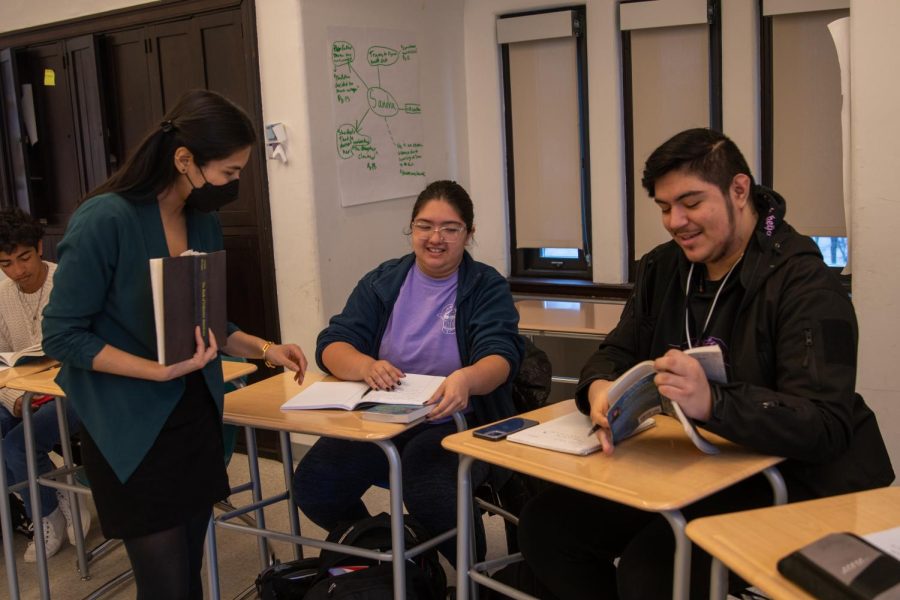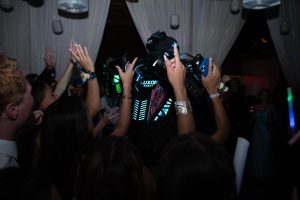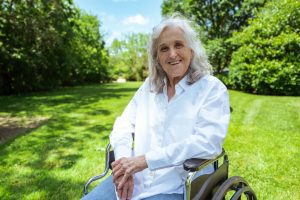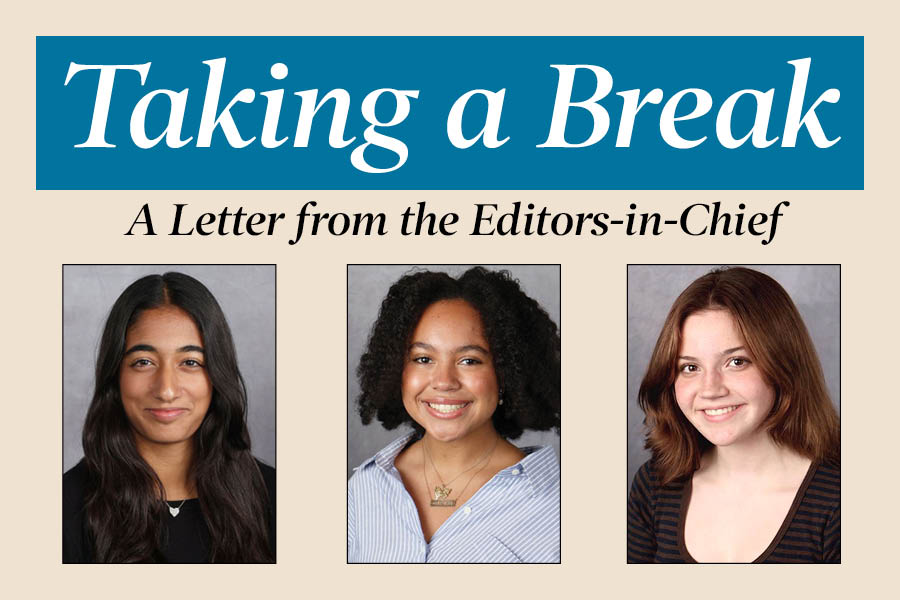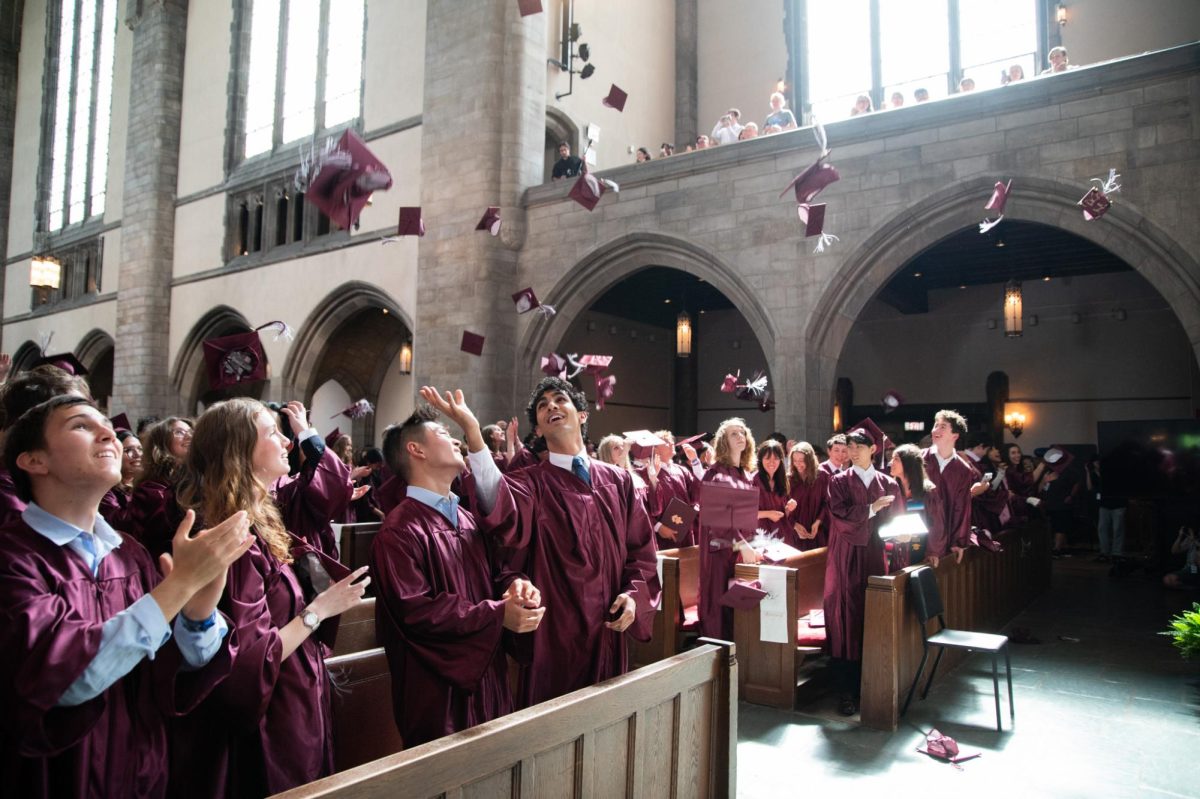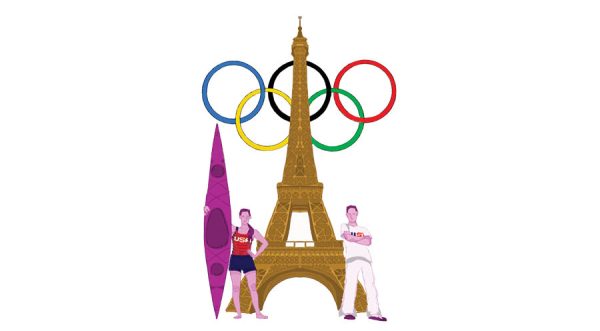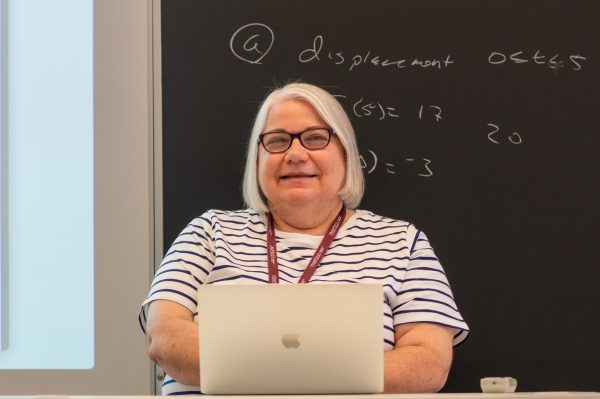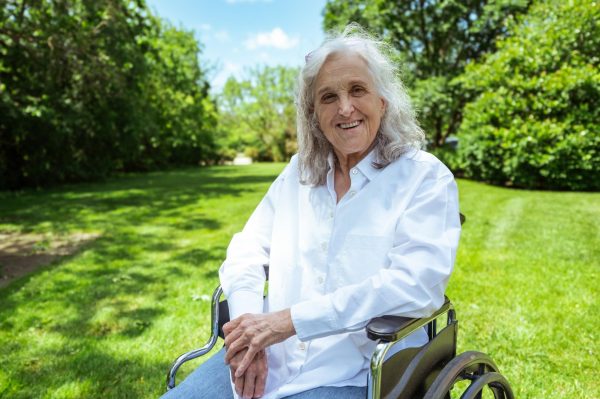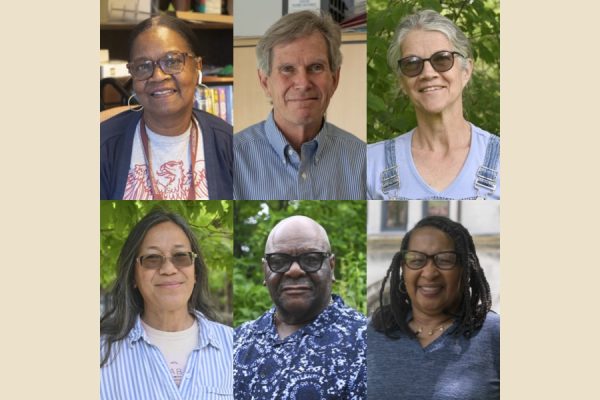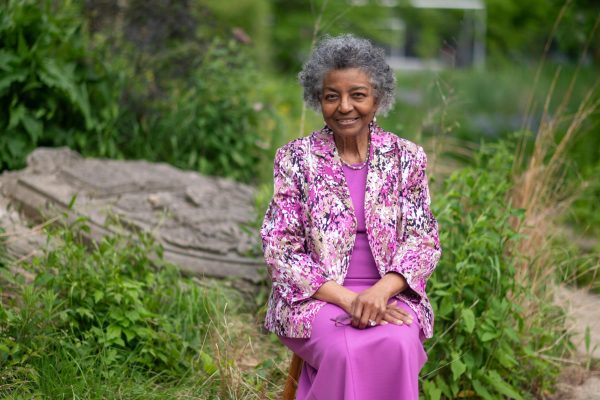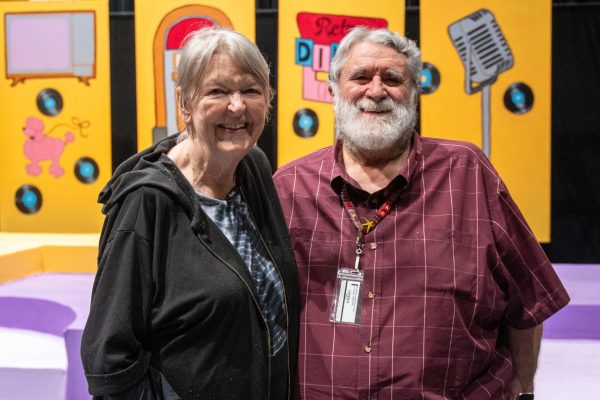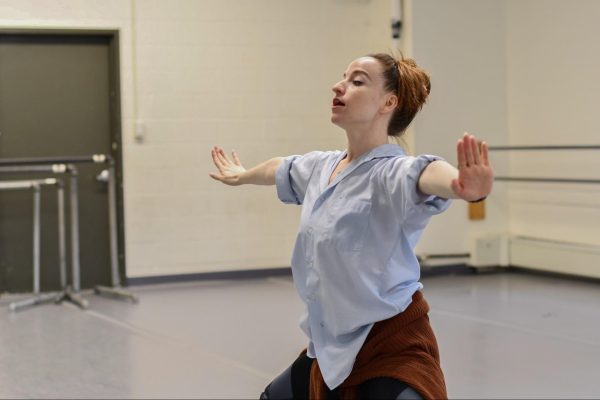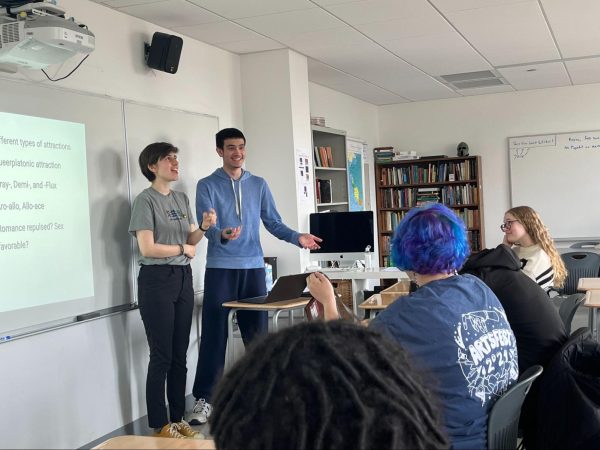In finding community, English teacher provides comfort for Latinx students
English teacher Sari Hernández instructs seniors Kariani Rojas and Juan Chaides during class. Since starting at U-High in 2016, Ms. Hernández has provided a safe space, particularly for Latinx students.
March 24, 2023
In 2017, Sari Hernández attended the monthly faculty meeting at U-High.
She introduced herself saying, “Hi, my name is Sari, S-a-r-i. It’s pronounced in Spanish. If you don’t speak Spanish, pronounce the ‘r’ like a ‘d.’”
Ms. Hernández hesitated. She then revealed that shortly afterward another colleague jokingly recited a similar spiel when introducing themself, but with their more common, European name.
Laughter filled the room, she said.
“That’s a survival tactic, what I do, right, to get people to be able to pronounce my name,” Ms. Hernández said. “At the end of the day, that was mocking me, even though they didn’t intend it to be so.”
It’s experiences like these which drive Ms. Hernández to value a culturally safe community, tightening the bonds she has with her few Latinx students and making them feel more comfortable and represented as a minority group at U-High.
These experiences started prior to her teaching at U-High, specifically observed during her time at Northwestern University. While Ms. Hernández seemed to avoid these difficulties, she noticed them happening to her Latina friends around her.
Ms. Hernández remembered hearing about a time in college when her friend was leaving the library at night and was approached by other students, supposedly drunk, who started mocking her by speaking to her in broken English.
Ms. Hernández notes that because of these experiences at predominantly white institutions (PWIs), like Northwestern University, she has a better understanding of her role at other PWIs, like U-High.
Ms. Hernández has been an English teacher at U-High since 2016, and has also managed to find a community through advising the Latinos Unidos club.
“When I’m not the only brown person in the room, when I’m not the only Latina in the room, it’s a sigh of relief,” Ms. Hernández said, shifting her hands up and down to emphasize certain phrases.
Juan Chaides, co-president of Latinos Unidos, believes that, similarly, Ms. Hernández is an important and comforting Latina figure in his life.
“She understands how it is to be in a Latino household and knows how it feels to be excluded the way that we are and knows the very specific type of ‘different’ that it feels to be both Latino in life as well as Latino at Lab,” Juan said.
It’s those cultural moments that I think are priceless.
— Sari Hernández
Latinos Unidos provides a safe community for Latinx students at U-High. At the club’s Día de Los Muertos event, activities like face painting, sugar skull decorating, mask making, papel picado and folkloric dance helped foster a community.
“It’s those cultural moments that I think are priceless,” Ms. Hernández said, smiling brightly through her black mask.
Ms. Hernández doesn’t only feel comforted by the shared cultural identity during these moments, but she also makes her students feel this way.
“She goes above and beyond for her students that maybe don’t have enough representation, and she allows those students to be seen,” Juan said.
Sophomore Isabella Alvarez, a member of Latinos Unidos who is also a student in Ms. Hernández’s advisory, recognizes that her relationship with Ms. Hernández is special, predominantly because of their shared identity.
She goes above and beyond for her students that maybe don’t have enough representation, and she allows those students to be seen.
— Juan Chaides
“It’s definitely unique with her, and I really appreciate that, ” Isabella said. “She’s a really connectable and relatable — I don’t even want to say teacher — but person.”
As a teacher and mentor, Ms. Hernández highlights the importance of identity in her own life and encourages her students to do the same.
“She keeps those around her in touch with their own identity,” Juan said. “Sometimes identity is kind of overlooked in the classroom in more than one way, and she really likes to focus it more on the student, which I feel like is needed.”
Tucking her long, dark hair behind her ears, Ms. Hernández acknowledged that there is an unspoken commonality between her and her Latinx students, strongly connecting her and them.
“Not gonna lie!” she said with a lighthearted laugh, sitting upright in her chair. “I see a Latino last name, I’m like, we are best friends now.”
However, the appearance of Latinx last names is scarce at U-High. According to the Laboratory Schools Admissions Brochure, 2% of all students are Latinx.
Ms. Hernández believes a change must be made to achieve a greater representation of Latinx students and faculty. She said that it is not just about bringing in a couple students here and there, but there must be a direct conversation when it is evident that a particular marginalized community is not being appropriately represented.
“But that probably won’t happen,” Ms. Hernández said.
Despite the difficulties Ms. Hernández has had to endure throughout her education and career, she has now become an important figure in her Latinx students’ lives, making them feel safer in their otherwise marginalized community.
“She is very passionate about her identity because she knows that representation is very important to people,” Juan said. “I don’t say this directly to her much, but she does have a massive impact on those who take her classes that are Latino.”



